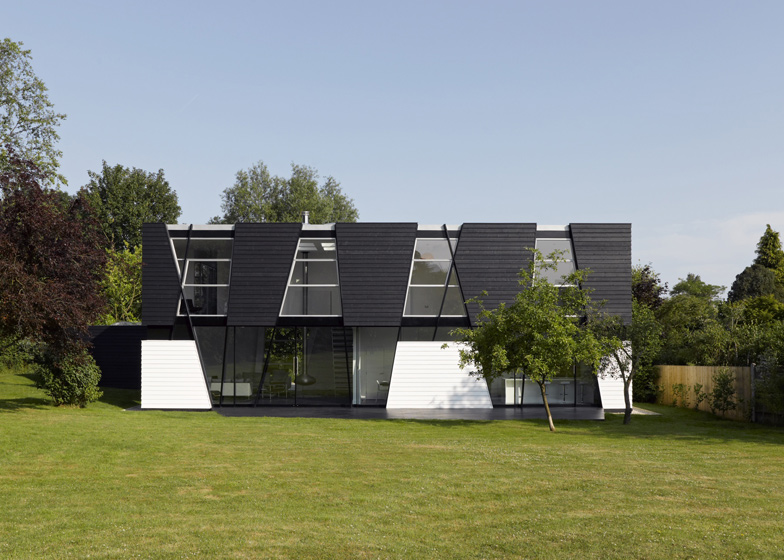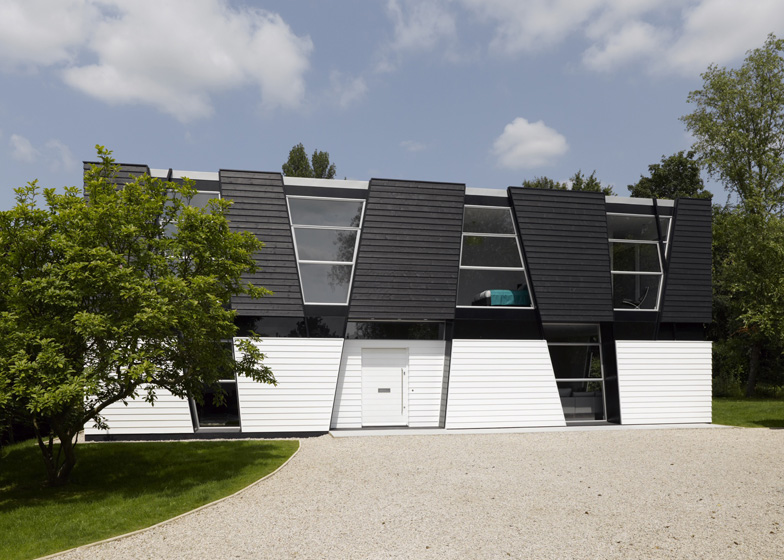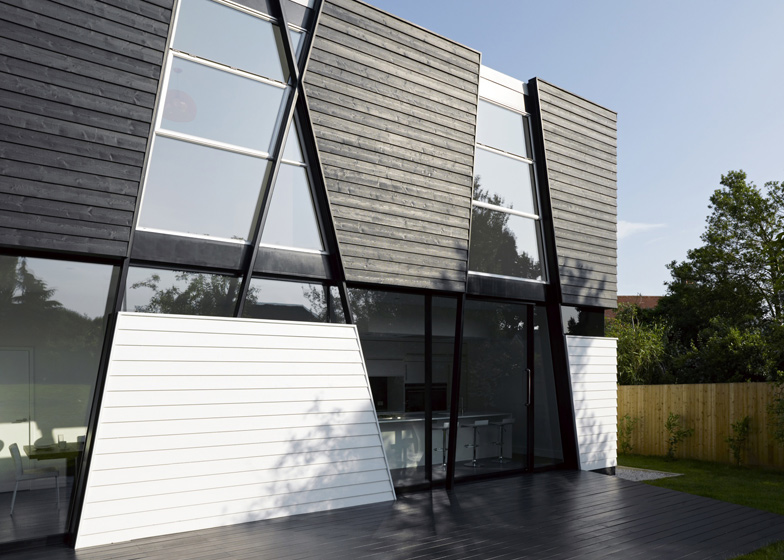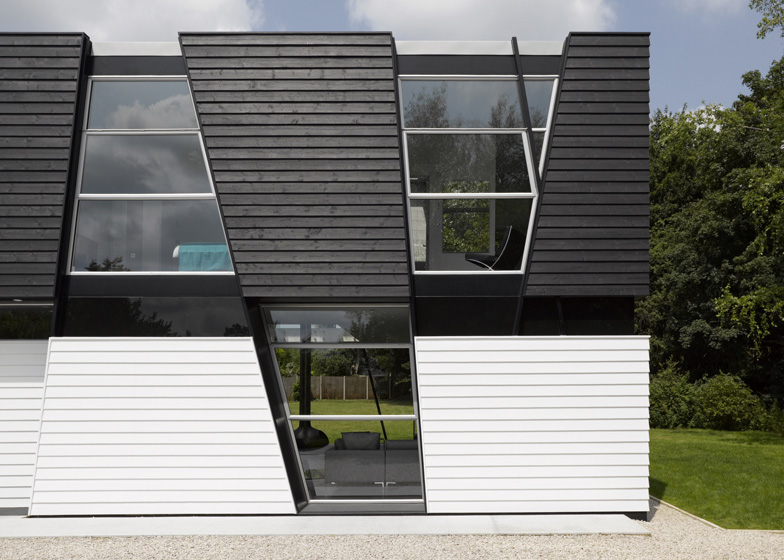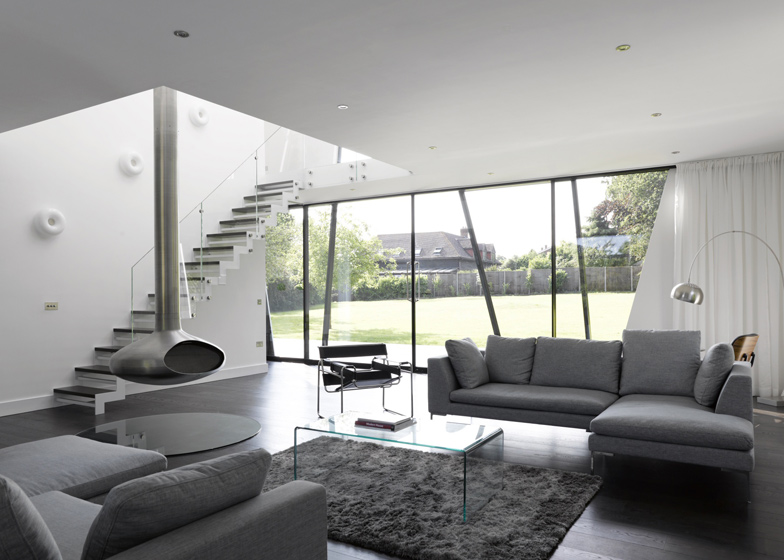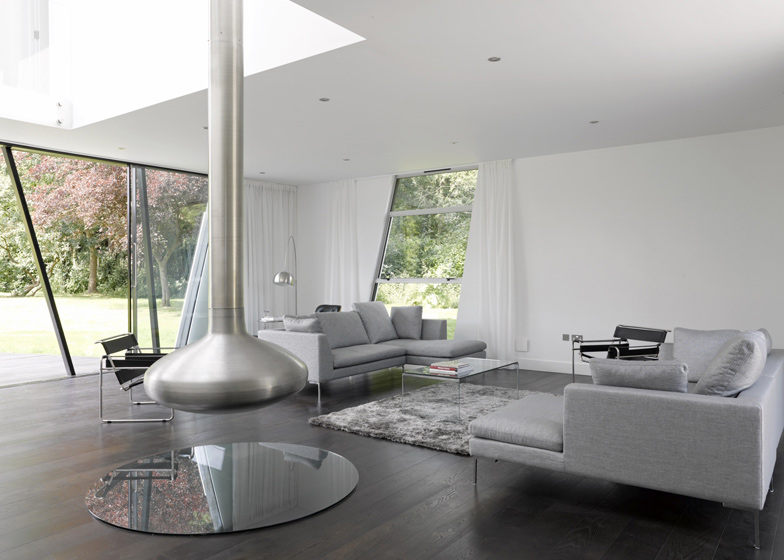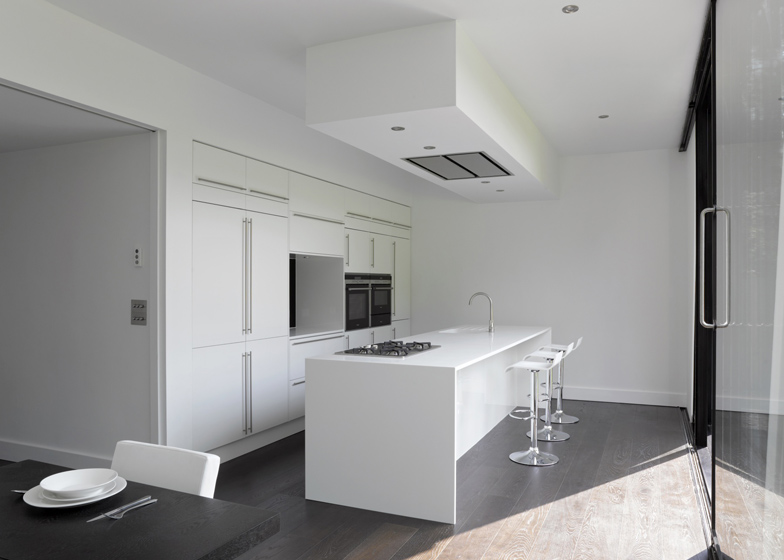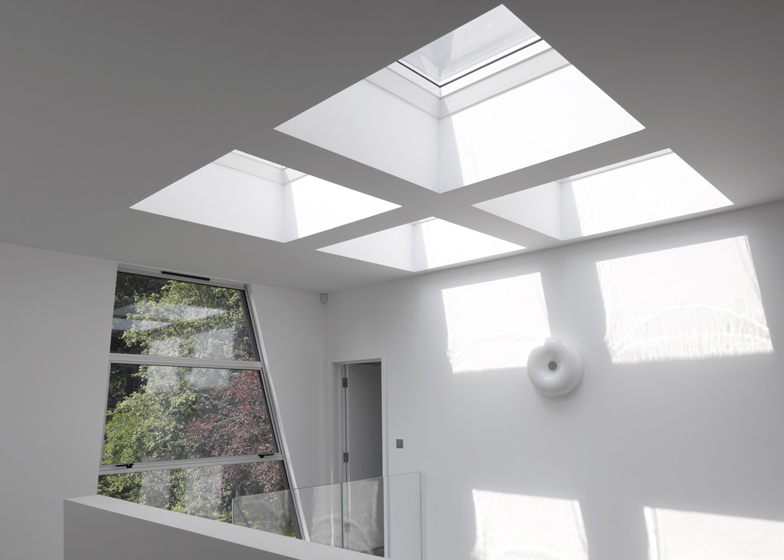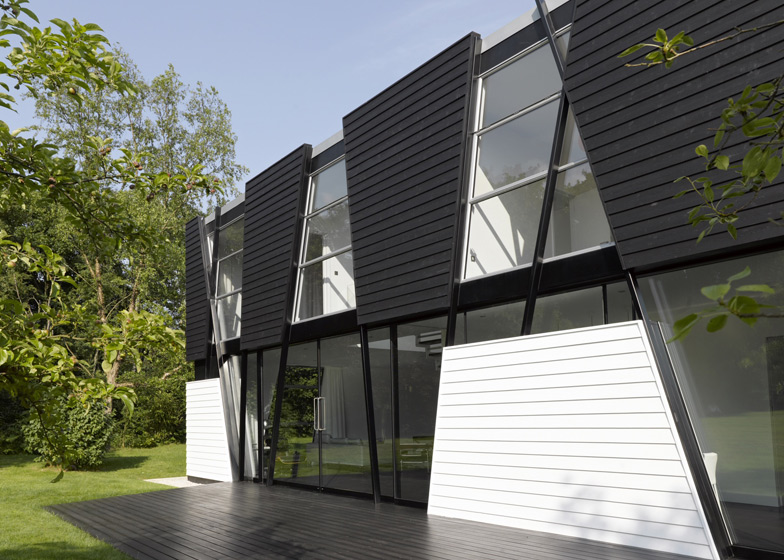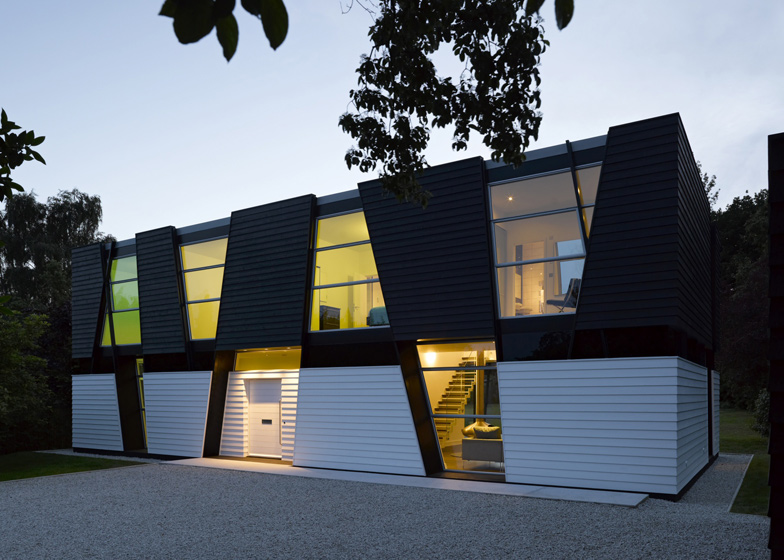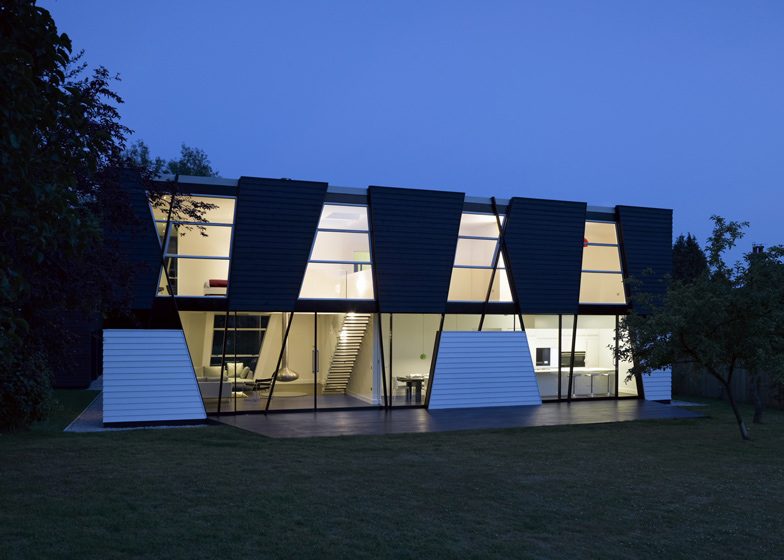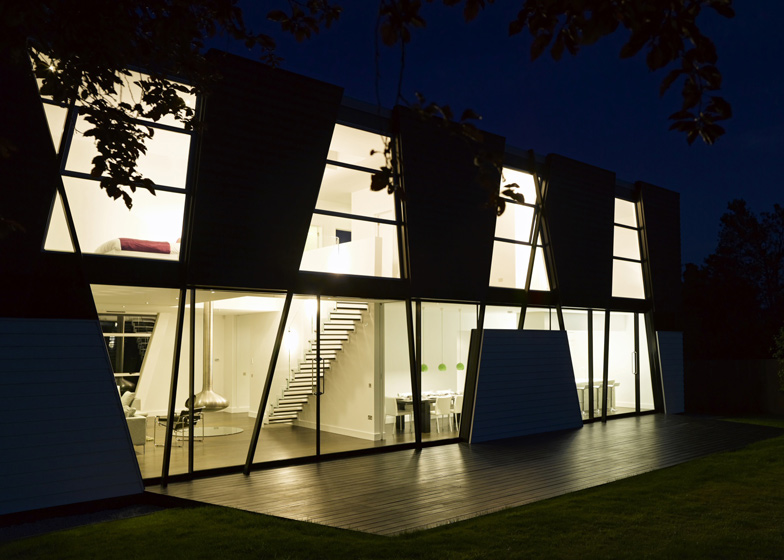The facade of this black and white house by British architect Matthew Heywood is sliced up into irregular shapes to mimic the crooked angles of tree branches (+ slideshow).
Matthew Heywood wanted to create an affinity with the surrounding woodland when designing the five-bedroom property, located in a small village in Kent, England.
The architect used slanted columns - known as raking columns - to form the structure of the building, referencing criss-crossing branches and twigs.
"Large expanses of glass fill the gaps between the structure and allow you to appreciate the landscape and setting as if you were peering out from between the trunks and branches of the trees," explained Heywood.
The residence is clad in a mixture of black-stained and white-painted clapboard, which is commonly found on houses in this part of England. "The weatherboarding represents the foliage wrapping the building and enclosing the spaces within," Heywood said.
The monochrome colour palette continues inside the house with dark flooring, white walls and furnishings in shades of grey.
The ground floor of the property includes a large reception area with a suspended fireplace and sliding doors that open out onto the garden.
A staircase with a glass balustrade leads to the first floor, which accommodates five bedrooms, three bathrooms and a dressing room.
Matthew Heywood doesn't just work on buildings - the London-based architect previously tried his hand at redesigning London's buses.
Other British houses we've recently featured include a small wooden house on the Isle of Skye and a house with a mirrored facade that slides across to cover the windows. See all our stories about British houses »
Photography is by Jefferson Smith.
Engineer - Fothergill & Company
Main Contractor - Ecolibrium Solutions
Here's a description from the architect:
Trish House Yalding
The design of the house developed in direct response to the site and its location within the beautiful village of Yalding in Kent.
The building’s structure is composed to reflect the surrounding woodland with the raking columns representing the irregular angles of tree trunks and branches.
Large expanses of glass fill the gaps between the structure and allow you to appreciate the landscape and setting as if you were peering out from between the trunks and branches of the trees.
The traditional Kentish black and white weatherboarding represents the foliage wrapping the building and enclosing the spaces within. In contrast to the surrounding nature, the form and lines of the house are intentionally very geometric and crisp, creating a dialogue between the organic woodland and the modernist box.

